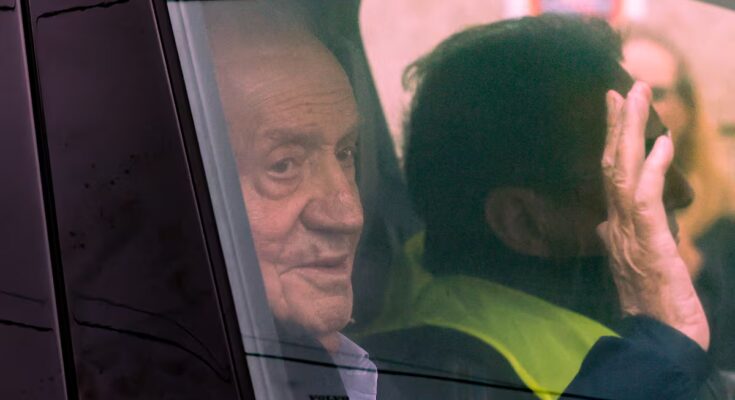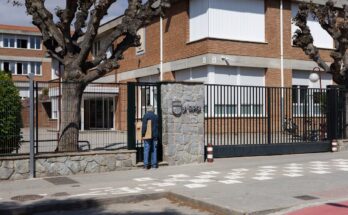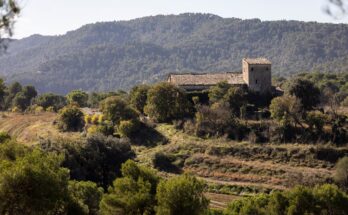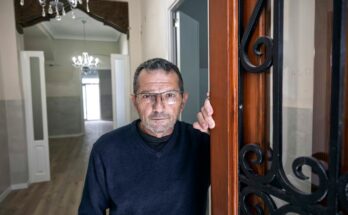In his work Introduction to the storythe great researcher and hero of the French resistance Marc Bloch collected an Arab proverb which stated that “men are more similar to their time than to their fathers”. He was undoubtedly right.
In 1974, from French exile and seeking the recognition and prestige that external legitimation could provide him internally, Santiago Carrillo turned to Regis Debray and Max Gallo to sign a book of conversations on the revolutionary strategy that the Communist Party intended to adopt after Franco’s death, entitled Demain l’Espagne. Regis Debray was a much admired intellectual at that time. Along with the letters, he had also taken up arms as a guerrilla companion of Che Guevara, while his wife, the anthropologist Elizabeth Burgos, was instrumental a few years later in Rigoberta Menchú’s candidacy for the Nobel Prize thanks to another book that emerged from a series of interviews.
In 2025, again from exile, this time in Abu Dhabi, Juan Carlos I seeks internal recognition of his career as monarch through external collaboration to write his Memoirs, in this case with Laurence Debray, author of two biographies on the king emeritus and rebellious daughter of Elizabeth Burgos and Regis Debray. It may seem paradoxical. If the parents and their entire generation never stopped reminding us that Franco died in bed, that the transition was a big lie and that we accepted without a doubt a monarchy inherited from the dictatorship because we are a docile people, now his daughter reproaches us in several interviews because we are unable to recognize the democratizing work of Juan Carlos I, which makes us ungrateful. They will be things of this time. The only thing that remains unchanged is the ability of the French to explain things to us. Juan Carlos himself underlines that he was annoyed by “the paternalistic attitude” of President Giscard d’Estaing. It wasn’t really anything personal. As a citizen with dual origin and nationality, I see how my French half is used to explaining things to my Iberian half. And we Spaniards do the same with the countries of Latin America, including Juan Carlos himself in the excessively rosy chapter he dedicates to “Building a Hispanidad”.
The declared enmity with Giscard, especially for his lack of collaboration in the fight against the terrorist group ETA, as well as with Carlos Arias Navarro, is one of the few concrete elements of a Memory that is surprising for its superficiality. Without documentary support of any kind, built on a chain of clichés and anecdotes devoid of relevance, the sentiment can be nothing more than a missed opportunity, since, beyond the evaluation it may ultimately deserve, the historical importance and political background of Juan Carlos I deserved a topic worthy of the circumstances.
And it is difficult to understand how a monarchy could consolidate its restoration at the end of the last century, in total contrast to what happened on a global level, especially if one takes into account that it was not the first time that the Bourbons found themselves in this situation. The dynasty must have something to explain this persistence. In this regard, the passages dedicated to the narration of mass baths and royal visits, such as the one in Catalonia in February 1976, full of sincere emotion, are probably the most interesting of the work. Especially to the extent that they allow us to glimpse closely the competence of the emeritus and that widespread notion of Juocarlismo, so similar to that Alfonsotrecismo that Moreno Luzón spoke about in The Patriot King. The parallels with Alfonso Thus, the same thing happens with respect to the attack against Carrero Blanco (“many mysteries remain unexplained today”), to “some ministers” who did not respect him and to “a member of Suárez’s government” who wanted to commit electoral fraud, none of them identified after the stone was thrown.
In this sense, the themes most awaited by both the general public and historians deserve special mention, such as the personal considerations on the dictator, the protagonisms during the transition and the relationship with Suárez and, above all, the story of the attempted coup d’état of 23F. The disappointment on this last point is capital. Absolutely no news, “everyone was playing with fire… and I understood it too late”, “it is said that…”, “I will never know” what Enrique Múgica and Alfonso Armada said to each other, with whom before the “betrayal” he had only one meeting in Baqueira of “two intimates who discussed the delicate situation that was going through the country”, “I estimate that half (of the captains general) were in favor of the rebellion” but they are not identified and there is no trace of the civil conspiracy, although at the beginning of the chapter the existence of a third coup is mentioned, together with that of Tejero with Milans del Bosch and that of Armada, carried out by “phalangists who wanted to join the two previous ones for a return to the Francoist order”.
Logically, there was never any break with Adolfo Suárez, whose reference, in his resignation speech, to the fact that democracy could no longer be a parenthesis is a “phrase that will continue to be enigmatic”. What is certain is “that he retained his trust, his recognition and his sincere friendship”, since it could not be otherwise between “the person who seamlessly embodied the reform I wanted to lead” and the “chief of the orchestra”. A director who, however, belittles the notoriety of his president in all the transcendental decisions of the process, from the drafting of the Political Reform Law, which Franco’s prosecutors approved “because they said to themselves: we have the opportunity to do one last positive thing for Spain”, to the legalization of the PCE, which he presents as the mature fruit of his personal efforts. The only concession to fifty years of academic research on the Transition is that it is mentioned and taken into account “because of street pressure”.
Although it is not very clear why there would have been a need, given that Francisco Franco had already thought of everything. In addition to building “countless swamps”, creating a “middle class” and a “social security still in force” – therefore without anesthesia and without Ernest Lluch’s General Health Law -, the dictator had a “clear vision of the current state of Spain and its future”, which had already given him explicit permission to restore “the freedom to create political parties” and was aware of secretly associating with members of the opposition. Obviously, such statements entail a fundamental contradiction with the objective of the book, since if this had been Franco’s will, the merits of the emeritus at the time of Spain’s democratization would, in reality, be rather limited. Memories can sometimes play tricks on us. Not in vain, Juan Carlos also states that it was then that he understood “that silence was a safe value”.



